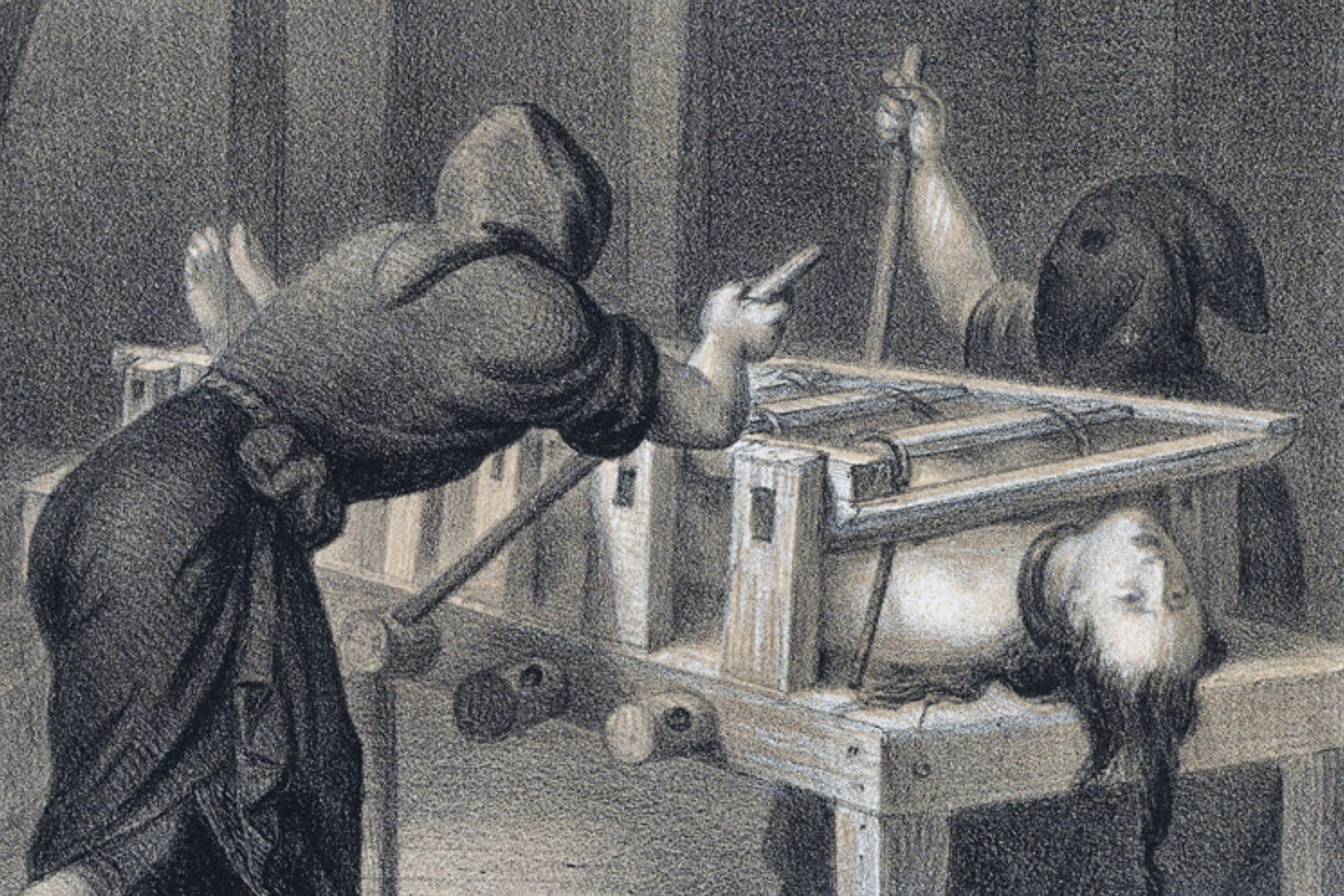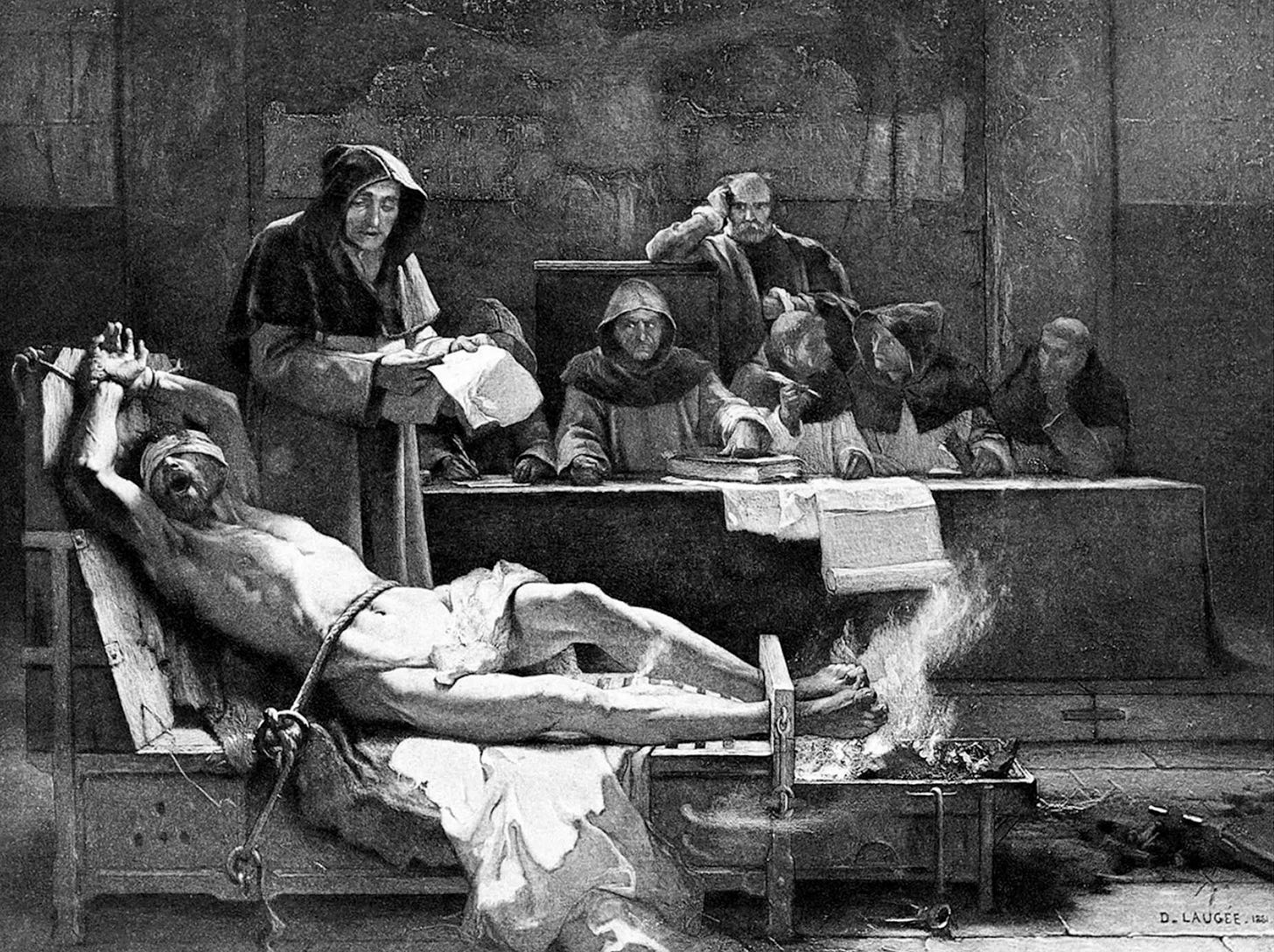Deloria wrote (God Is Red), “If one were to take the last two thousand years and the events of that period as a representative of the validity of the Christian religion in bringing peace on Earth, then there would be little question that the religion is incapable of invoking any significant peaceful change in people or their societies. That period has been filled with continual warfare, conquest, bloodshed, and exploitation. In too many instances it was Christian pitted against Christian, leading one to conclude that the faith certainly played no favorites in choosing its victims. It has not been simply American Indians or other non-Christian peoples who have been the victims of Christians. One crusade began by sacking Constantinople, a city filled with Christians at the time.”

According to Christian forgeries being passed off as historical events, St. Stephen was the very first martyr of Christianity. However Reverend Taylor noticed the absurdity of the names used in scripture, “Stephen, a name of the same order as Nicodemus, Philip, Andrew, Alexander, &c., entirely of Grecian origin, ascribed to Jews, who never had such names, nor any like them.”

I’m trying to refrain from saying anything inflammatory, but it’s almost impossible to do on account of the amount of people that were murdered as a result of Christianity. A religion that calls its savior the Prince of Peace has not brought peace anywhere it has spread for over two millennia. For a Child hath been born to us, A Son hath been given to us, And the princely power is on his shoulder, And He doth call his name Wonderful, Counsellor, Mighty God, Father of Eternity, Prince of Peace. (Isa. 9:6) Also observe how Isa, the root of Isaiah, is Christ in Arabic, yet another play on salvation or deliverance in Hebrew (ישע), which transliterates as iso.
People from Europe to Asia tend to rely on their religious texts for history and, as a result, struggle to discover anything significant chronologically because most of their texts are allegorical, not historical. In the Americas, there is a massive difference between the northern tribes and the southern tribes. The people of Mexico down through South America tend to adopt more of an Old World system of mythoses and chronological timelines based on them, calendars and holy days, whereas the tribes of the north tend to associate their history with landmarks, but do not put as much emphasis on chronological details, only that events occurred at the locations. However, aside from the last few hundred years of excellent record keeping, neither side can give accurate chronological or historical accounts of what happened in this world without relying on stories from their elders (Indians), or texts that have been exposed as forgeries and/or allegories and mythology (Europe and Asia). The African tribes tend to align more with the northern American Indians, in the sense that the keeping of time isn’t as important. But both sides have proven that without good recording instruments, humans have been terrible at keeping time, and as a result, discovering history is one of the greatest challenges a researcher can undergo to endeavor.
If the origins of Christianity interest you, check out this podcast.
That was only one portion of one chapter in one of the most epic books you’ll read on the subject. For the full experience, grab a copy of Spirit Whirled: Terminalia (Click the image) and upgrade your knowledge like never before.
Become a member to access the rest of this article and keep reading to learn more about the American Indian sacred geography.
Keep reading with a 7-day free trial
Subscribe to Ancient History, Mythology, & Epic Fantasy to keep reading this post and get 7 days of free access to the full post archives.





